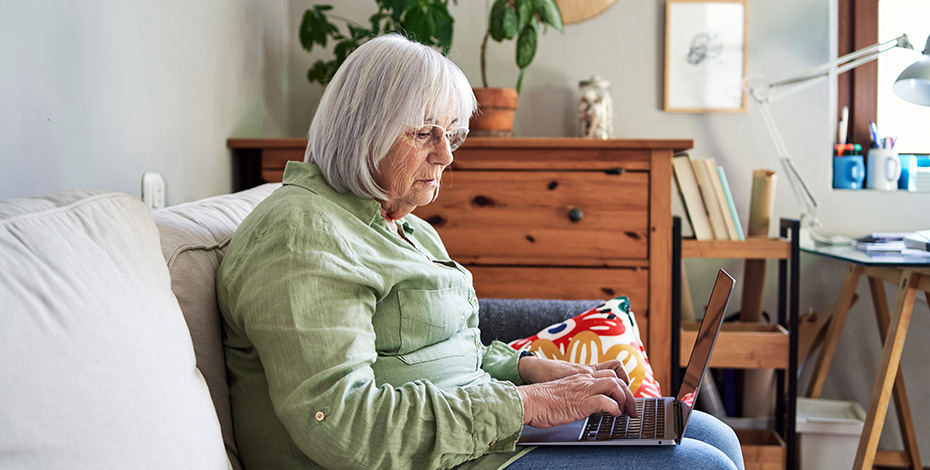
Putting patient education to the test

Rachel Nelligan received a PRF Seeding Grant in 2022 to investigate the effectiveness of an e-learning course for patients with osteoarthritis.
A key aspect of osteoarthritis (OA) care is patient education.
However, there are barriers to physiotherapists delivering high-quality education to patients with OA—skill and knowledge deficits, time pressures and a lack of high quality resources to give to patients.
And while there is a lot of information available online about OA and pain management, it can be difficult to find credible information.
‘We know that a lot of people with osteoarthritis are not participating in recommended treatments such as exercise and we know that health professionals can have limited time to comprehensively deliver education about osteoarthritis to support the treatments that they’re providing,’ says University of Melbourne researcher Dr Rachel Nelligan from the Centre for Health Exercise and Sports Medicine.
Rachel has developed an online learning program for people with hip and knee OA to help them understand and manage the
chronic condition.
The program consists of four self-paced modules delivering evidence-based information on exercise and physical activity, weight loss, medications, joint surgeries and additional management strategies.
Rachel hopes that the program will equip people with OA to make their own decisions about treatment.
‘We developed the OA course because there was nothing out there to help address some of the out-of-date beliefs that people have about osteoarthritis that can impede their adherence to recommended treatments like exercise.
'We also wanted to support clinicians and primary care professionals to deliver comprehensive education about osteoarthritis—this could be a helpful resource for clinicians to provide to their patients to support the education they’re giving and the treatment they’re prescribing,’ she says.
‘The program is designed to give people the best, most up-to- date information about what osteoarthritis is—its symptoms, its diagnosis and the core recommended treatments.’
Rachel was recently awarded a $12,000 Seeding Grant by the Physiotherapy Research Foundation, with support from corporate partner WorkSafe Victoria, to evaluate the program through a randomised controlled trial (RCT), testing the ability of the course to improve people’s knowledge about OA compared to a control group who will be given an electronic pamphlet about OA that is currently freely available online.
The grant will fund a research assistant to help with recruiting and managing participants in the trial as well as statistical support.
‘We’re hoping that the four-module course will improve people’s knowledge about their condition and its management and will enhance their confidence to manage their symptoms and their pain.
'We also hope to see a reduction in the belief that people need a joint replacement,’ says Rachel.
‘Thinking more broadly than just the RCT, we’re hoping that this online course will be freely available to people in Australia and internationally.
'We would like to provide as many people as possible with a one-stop shop for credible information about osteoarthritis.’
The idea for the program stemmed from feedback from people with OA and Rachel’s previous research developing and evaluating OA patient resources.
People with OA who had completed the Centre for Health Exercise and Sports Medicine’s freely available online learning program for clinicians, Physiotherapy Exercise and Physical Activity for Knee Osteoarthritis, were requesting a lay course.
The program builds on Rachel’s PhD research, which focused on the development of a patient resource, a self-directed exercise intervention for patients with knee OA. She is working on a similar set of exercise resources for hip OA.
‘Digital health is so scalable and it has the ability to help lots of people quickly—there are few barriers to its implementation,’ she says.
Rachel hopes to complete all recruitment into the RCT by late this year and aims to update the course based on feedback and
qualitative interviews with participants after its completion in 2024.
There are also plans to translate the course into other languages for use worldwide.
Translation into simple Chinese is already underway.
‘The important thing when doing an RCT is to make sure that you have in your mind how the intervention will potentially be implemented or disseminated.
'It’s exciting to start to connect with musculoskeletal organisations and with clinicians to get a feel for how the resource can move out into the real world,’ Rachel says.
© Copyright 2025 by Australian Physiotherapy Association. All rights reserved.





